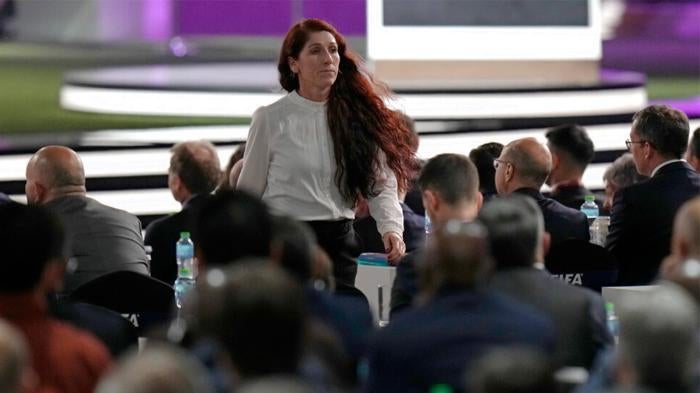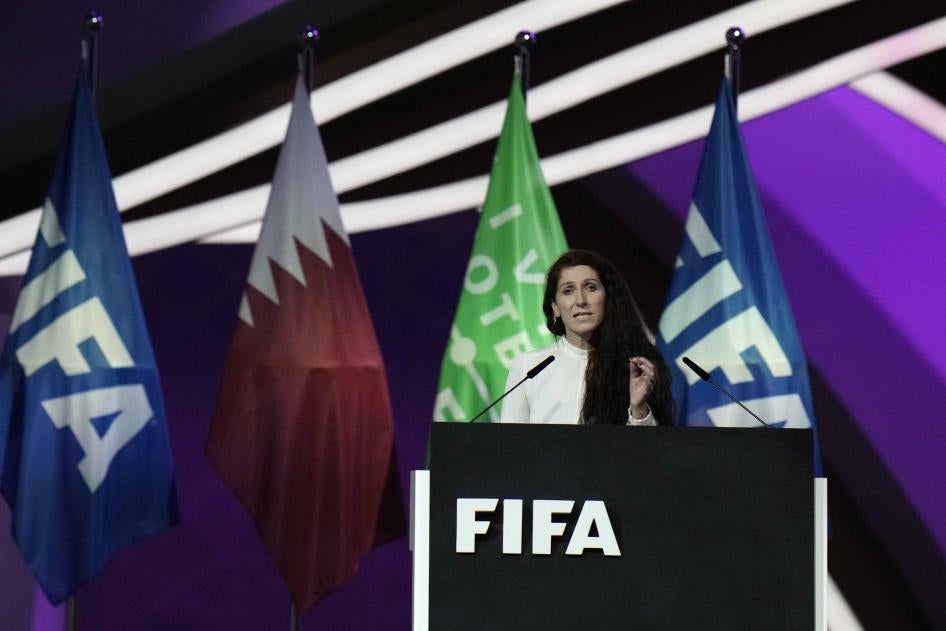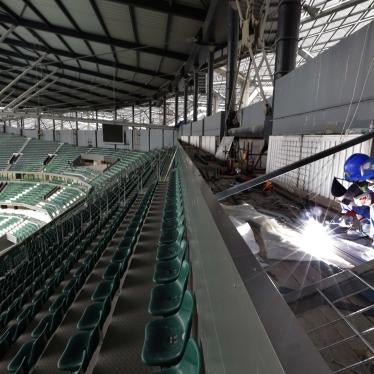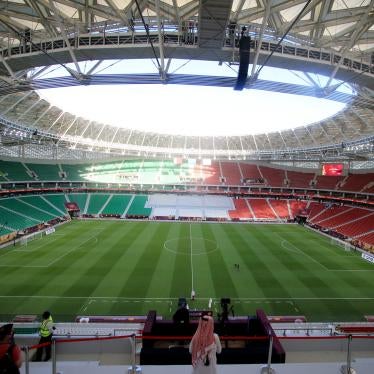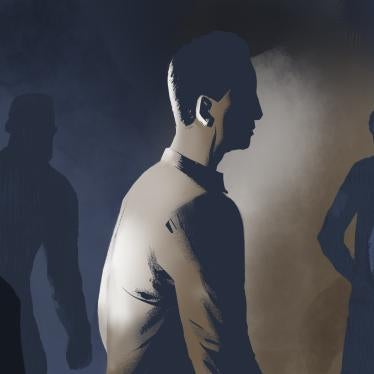On March 31, as FIFA convened its 72nd Congress in Doha, one speaker took a brave stance on the uncomfortable truth about human rights in Qatar.
Lise Klaveness, the Norwegian Football Association president, directly called out FIFA’s failure to protect human rights when selecting Qatar to host the 2022 World Cup. Referencing “the beautiful game,” she noted, “Human rights, equality, democracy, the core interests of football, were not in the starting 11 until many years later. These basic rights were pressured on as substitutes, mainly by outside voices.”
Specifically, Klaveness urged FIFA to ensure the migrant workers injured and families of those who died in the build up to the World Cup are cared for.
Echoing a slogan used previously on her team’s jerseys, “Human Rights: On and Off the Pitch,” Klaveness’s words eloquently captured a common sentiment: the beautiful game should not come at the cost of human rights.
As the World Cup fast approaches, football associations are increasingly facing pressure to speak up on persistent rights abuses. England manager Gareth Southgate recently expressed concerns about migrant workers’ rights in Qatar and the conditions they live in, and how fans, including lesbian, gay, bisexual and transgender (LGBT) people, may feel threatened to visit Qatar due to its repressive laws. While Qatari authorities call them “isolated cases,” organizations such as Human Rights Watch and Amnesty International have consistently documented how many migrant workers, mainly from Asian and African countries, face widespread wage theft, debt bondage from high recruitment fees, illness due to employer negligence and working in searing heat, and unexplained deaths.
Meanwhile, despite Qatar’s assurance that LGBT fans will be free to fly the rainbow flag at the games, an international coalition of groups have noted Qatar’s lack of progress in implementing recommendations made to the country's World Cup Supreme Committee, including legal reform and free expression guarantees around LGBT issues.
Migrant workers, their families, and migrant rights advocates have spent a decade calling for better protections and compensation for the loss of lives and livelihoods in Qatar. Now, football associations need to support them and others facing repression in the country by leveraging their platform and putting the spotlight on human rights as boldly as Klaveness did.

